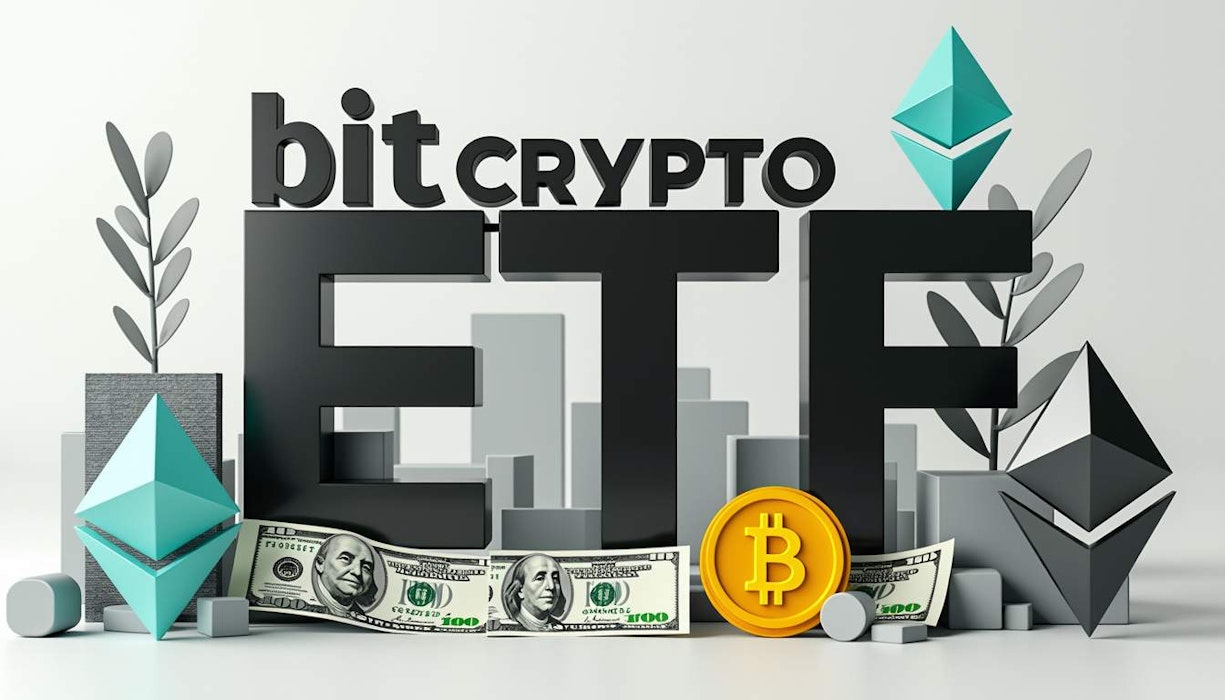The Rise of Crypto ETFs
Crypto ETFs are becoming a thing, huh? These Exchange-Traded Funds let you dip your toes into a pool of cryptocurrencies without actually owning any. They're traded on regular stock exchanges, which makes it super easy for both big players and everyday folks to get in on the action. As we move forward in this wild crypto landscape, it seems like these ETFs are becoming the go-to link between traditional finance and our beloved digital assets.
Bitwise's Proposal: What You Need to Know
Now, let's talk about Bitwise Investment Management. They've just thrown their hat in the ring with a proposal to launch a 10-Crypto Index ETF. This fund aims to give investors exposure to what they call the "Bitwise 10 Large Cap Crypto Index." We're talking heavyweights here: Bitcoin, Ethereum, Solana, Ripple, Cardano, Avalanche, Chainlink, Bitcoin Cash, Polkadot, and Uniswap.
Bitwise filed this proposal on November 14 under NYSE Arca Rule 8.800-E. They want to list the ETF on the NYSE Arca exchange. And get this—Coinbase Custody will be holding all the assets! Seems pretty secure...or is it? The plan is to rebalance monthly so that only the top ten large-cap cryptocurrencies are included.
To avoid any funny business with market manipulation (because we all know how shady things can get), they're going for a cash issuance model for ETF shares. This aligns perfectly with what the SEC seems to want these days—safe products that won't cause chaos.
The Centralization Dilemma
But here's where things get tricky: centralization vs decentralization in crypto. We've got major players like Binance and Coinbase holding huge amounts of staked ETH and other cryptos. Doesn't that defeat the whole purpose of decentralization? When a handful of exchanges have so much power, they can influence everything—from transaction censorship to network operations.
Centralized exchanges create choke points in our beloved decentralized networks. If those exchanges go down or get hacked (remember Mt Gox?), it could spell disaster for everyone involved. And let's not even start on how compliant those exchanges might be with government regulations; it's like handing over control on a silver platter.
Are Crypto ETFs Good or Bad?
Now back to these crypto ETFs—are they good or bad? On one hand, they make investing easier and provide a regulated route into an otherwise chaotic space. But do they increase market volatility? Not really; that’s more about Bitcoin and Ethereum being inherently volatile as assets.
In fact, some argue that having more institutional money through regulated vehicles might actually stabilize things—if those institutions don’t panic sell during dips!
And then there's cross-border payments using cryptocurrencies—a whole different kettle of fish! Companies like Ripple are making waves (pun intended) by partnering with traditional financial institutions to streamline payment processes using less-than-friendly fiat currencies.
Summary: A Necessary Evil?
So there you have it—the introduction of Bitwise's 10-Crypto Index ETF is a significant milestone but comes with its own set of complications regarding centralization and market dynamics.
As we navigate this evolving landscape, one thing seems clear: whether we love them or hate them, crypto ETFs might just be here to stay as bridges between traditional finance and our decentralized dreams.
